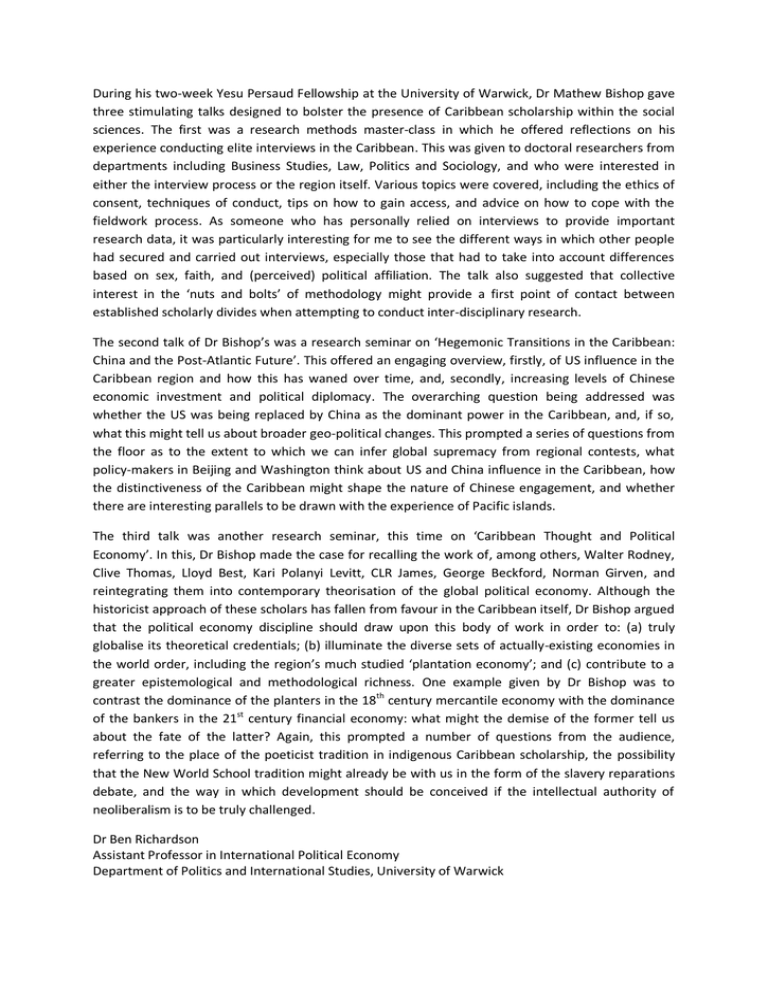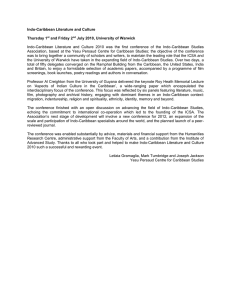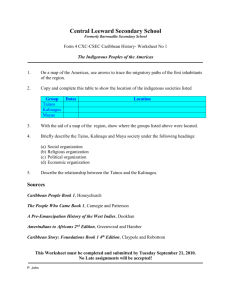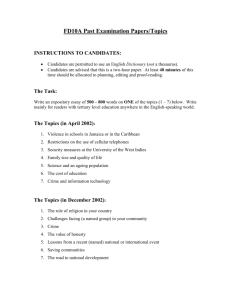During his two-week Yesu Persaud Fellowship at the University of... three stimulating talks designed to bolster the ...
advertisement

During his two-week Yesu Persaud Fellowship at the University of Warwick, Dr Mathew Bishop gave three stimulating talks designed to bolster the presence of Caribbean scholarship within the social sciences. The first was a research methods master-class in which he offered reflections on his experience conducting elite interviews in the Caribbean. This was given to doctoral researchers from departments including Business Studies, Law, Politics and Sociology, and who were interested in either the interview process or the region itself. Various topics were covered, including the ethics of consent, techniques of conduct, tips on how to gain access, and advice on how to cope with the fieldwork process. As someone who has personally relied on interviews to provide important research data, it was particularly interesting for me to see the different ways in which other people had secured and carried out interviews, especially those that had to take into account differences based on sex, faith, and (perceived) political affiliation. The talk also suggested that collective interest in the ‘nuts and bolts’ of methodology might provide a first point of contact between established scholarly divides when attempting to conduct inter-disciplinary research. The second talk of Dr Bishop’s was a research seminar on ‘Hegemonic Transitions in the Caribbean: China and the Post-Atlantic Future’. This offered an engaging overview, firstly, of US influence in the Caribbean region and how this has waned over time, and, secondly, increasing levels of Chinese economic investment and political diplomacy. The overarching question being addressed was whether the US was being replaced by China as the dominant power in the Caribbean, and, if so, what this might tell us about broader geo-political changes. This prompted a series of questions from the floor as to the extent to which we can infer global supremacy from regional contests, what policy-makers in Beijing and Washington think about US and China influence in the Caribbean, how the distinctiveness of the Caribbean might shape the nature of Chinese engagement, and whether there are interesting parallels to be drawn with the experience of Pacific islands. The third talk was another research seminar, this time on ‘Caribbean Thought and Political Economy’. In this, Dr Bishop made the case for recalling the work of, among others, Walter Rodney, Clive Thomas, Lloyd Best, Kari Polanyi Levitt, CLR James, George Beckford, Norman Girven, and reintegrating them into contemporary theorisation of the global political economy. Although the historicist approach of these scholars has fallen from favour in the Caribbean itself, Dr Bishop argued that the political economy discipline should draw upon this body of work in order to: (a) truly globalise its theoretical credentials; (b) illuminate the diverse sets of actually-existing economies in the world order, including the region’s much studied ‘plantation economy’; and (c) contribute to a greater epistemological and methodological richness. One example given by Dr Bishop was to contrast the dominance of the planters in the 18th century mercantile economy with the dominance of the bankers in the 21st century financial economy: what might the demise of the former tell us about the fate of the latter? Again, this prompted a number of questions from the audience, referring to the place of the poeticist tradition in indigenous Caribbean scholarship, the possibility that the New World School tradition might already be with us in the form of the slavery reparations debate, and the way in which development should be conceived if the intellectual authority of neoliberalism is to be truly challenged. Dr Ben Richardson Assistant Professor in International Political Economy Department of Politics and International Studies, University of Warwick



